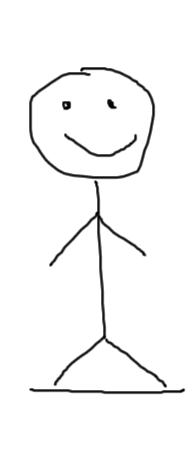Your handwriting sucks. Give me normal text
Normal text is boring. Show me handwriting
Why I Pray
Let’s get one thing straight – the act of praying is inherently selfish.
A number of studies have been done to observe the efficacy of prayer in medical healing, and meta analysis of these studies indicates no statistical difference in outcome between patients who receive prayer and those who do not. The only significant finding in most studies was that individuals who were aware people prayed for them tended to heal better. In fact, people who are told they are receiving prayer when in fact they are not show equal benefit to those who knowingly received prayer.
In other words, prayer as a selfless act doesn’t work. Somewhere deep inside most of us, I think we know that praying for victims of a storm, or earthquake, or pandemic doesn’t actually do anything for them. We trick ourselves into thinking it works because we see enough instances of people for whom we’ve prayed beating the odds. But that’s exactly what’s happening – they’re beating the odds. Odds are, if you pray enough, you’ll end up praying for people who will succeed in overcoming whatever ails them. There’s no causation, but it reinforces our behavior nonetheless.
There’s nothing wrong with this, so long as we don’t mistake prayer for doing something that actually helps, like donating time, money or resources to a cause, or visiting and raising the spirits of people who are sick (the physiological effects are real and measurable).
We pray for others, but we do it for ourselves. There’s no actual benefit for others. We do it to make us feel better. That doesn’t make it bad! It’s OK to console yourself in the face of tragedy.
Generally, prayer is associated with religion, spirituality and/or some belief in a force/consciousness beyond our human understanding. Those who know me know I carry no such beliefs. I don’t disbelieve them. I simply don’t have a position for or against the existence of higher power(s), whether they be akin to God, of nature, or otherwise. I believe in the power of people to take actions that improve the of lives of others. That’s where I place my faith, in the people around me and in the hands of people I may not know, but who I trust can make a difference for others in need.
In order to make my final point, I must decouple prayer from religion. I pray – not for the mysterious hand of God to heal the sick or for the universe to magically spew positive energy and light on us. I pray that the right people are doing the right things. I pray that someone will get the attention they need. I pray that the circumstance that have placed us where we are will be advantageous to the person who needs us in this moment.
It’s a selfish act. I know my prayers won’t get an ambulance to a hospital any faster, or guarantee the right medical care will be administered. I’m not praying for something “greater,” and I know it’s selfish and has no impact on a given situation. So why do I bother?
I pray because it reminds me that I still care. I pray because sometimes the person who is needed is me. I’m compassionate by nature, and prayer is a conscious on-switch for me. I will always take action when I can. Prayer is a passive way to maintain the person I am even when I can’t do something more meaningful. I’m very clear about what prayer is. I have no illusions about its effects. I understand when I pray, it’s all about me. That’s ok. It’s important for me to take care of me. It helps me take care of others when it’s my turn to step up.
Regardless of to whom or for what you pray, I hope you do not treat it as a substitute for action. Think of prayer as fuel for your own soul. It’s only meaningful if it results in beneficial action for others.






